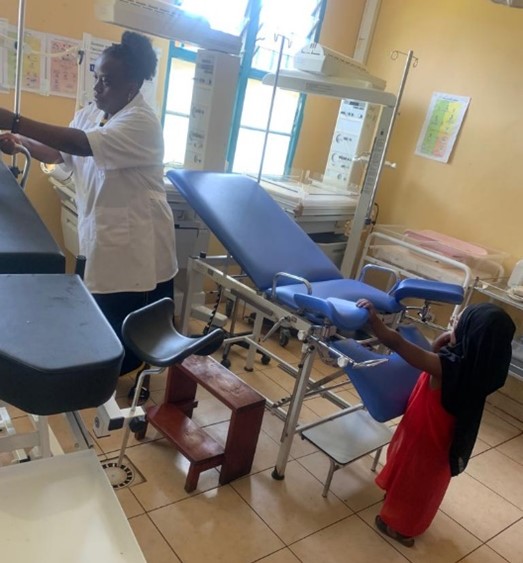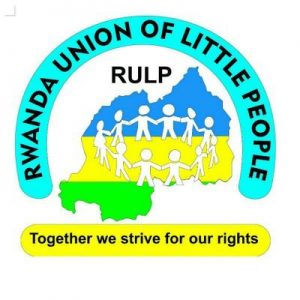The CRPD is the first international human rights treaty to set out the concept of accessibility in the context of disability. The Convention recognizes accessibility as an inherent right of persons with disabilities and also applies accessibility to the achievement of all rights for persons with disabilities, detailing “the importance of accessibility to the physical, social, economic and cultural environment, to health and education and to information and communication, in enabling persons with disabilities to fully enjoy all human rights and fundamental freedoms.

In the context of accessibility, Rwanda Union of Little people had a field visit with local Authorities and health service providers in health centers of Musanze and Nyamasheke districts to check how they include Persons with Short Stature in their services.
Honorine TUYISHIMIRE, RULP Executive Director said that there is a need of accessibility in Rwandan health system in various services provided. “We have found that in the visited health centers some materials like examination tables, sick-beds, waiting chairs, delivery beds and materials in family planning rooms are not accessible and, in that way, some services need to use stairs in the ways, some places like toilets are dirty that a person with short stature who need to use wheelchairs, but do not have them cannot access those places”.
Some of the visited health centers’ representatives recommended to keep some changes though sometimes is very difficult due to different circumstances.
Gilbert NDUWYEZU, Head of one of the visited Health Center said that they have seen what is right and what is wrong to be corrected in their health centers that they are going to change for the accessibility of the services to persons with disabilities especially with short stature though budget may be the hindrance.
“In our management, we have different things we can change without waiting for district or ministries’ supports like having accessible chairs and removing stairs for the services accessibility. We are going to change whatever is possible to us as quick as possible and as recommended”. He said
Israel MANIRIHO, Musanze district CBHI Officer said that it is not good that an institution out of district found mistakes before owners reveal them by ourselves. But, “if it has already happened, we need to wake up and do an assessment in all areas where health services are provided to study this case of inaccessibility, prepare a report showing the issues and what can be done. In partnership with health centers, we really recommend to you that something is to be changed and in addition, for the new buildings, we are going to consider the challenges”. ed.
Chantal NIYONSABA is a Labo Tech in one of the visited health centers of Nyamasheke district. She said as a person with short stature that she faces too many challenges in her ever day activities. “ . I face a number of issues in my dairy activities. By using materials like microscope, chairs and tables used are somehow inaccessible to me. In addition, staff toilets used at the hospitals are not accessible to use them”. She claimed.
I am seriously very happy for this visit, at least, my colleagues have seen all my challenges, what to improve, what to remove or change related to infrastructure or materials to make them accessible to me as an employee and other persons with disabilities that we serve. I hope that too many things are going to be changed for sure”. She added
Hesron UWITONZE, Disability Mainstreaming Office of Musanze district said that there is a need of mobilization not only in the visited health centers, but also in all institutions that provide health services.
“In partnership with Health unity, we are going to do the mobilization in order to change whatever related to the sanitary in health service providers institution as one of the main issues to persons with disabilities and we recommend to do the follow-up. In addition, I wish this kind of accessibility check may reach in other institutions that provide various services”.
Honorine TUYISHIMIRE concluded recommending the change of what have seen inaccessible to persons with short stature in order to access health services in not only visited health centers but also wherever health services are being provided.
She said that in partnership with other organizations of persons with disabilities, districts and service providers, they could work together to remove all the challenges that persons with disabilities faces in accessing health care services in infrastructure like stairs, dirty toilets, public wash stations, ways and materials like beds, chairs and tables. “We wish they should let us show them what we need and how it may be applied”.

Start sharing, start earning—become our affiliate today! https://shorturl.fm/Dz6dh